We’re here to tell you what’s hot and what’s not on this week’s music roundup

2 Chainz – RAP OR GO TO THE LEAGUE
Genre: Trap Rap
Favorite Tracks: “NCAA,” “Threat 2 Society,” “Whip”
Rap or go to the league; it’s a saying I have heard plenty of times before. A large number of my friends who I played basketball with are currently pursuing rap careers. It’s either one or the other for them, and that was ingrained in their heads at a young age—rapping or hooping are frequently viewed as the only two ways out of the circumstances presented to underprivileged black youths. It was something I’m sure Tauheed Epps (aka 2 Chainz) and LeBron James were told over and over again growing up. On RAP OR GO TO THE LEAGUE, James has his fingerprints up and down this album. I guess when he’s not too busy being the NBA GOAT he moonlights as the potential Rick Rubin of his generation? Talk about having the Midas touch. Together they craft what is the most refined and direct 2 Chainz album to date. After a pretty successful stretch of his career with both commercial success and critical acclaim, this was as good a point as any to take his experience becoming successful after growing up black in America and craft an album around it. RAP OR GO TO THE LEAGUE is about the adversities and the high points that he has gone through during his life. The opening track, “Forgiven,” ends with a spoken word tribute of how young black boys are seen and treated in our society. “Threat 2 Society” might be his smoothest song ever, trading off emotional verses over a soulful 9th Wonder beat and keeping an even-keeled flow and mindset throughout. He shows a newfound maturity over these tracks that allows him spread a focused message. Somehow through all the heaviness of the subject matter that he raps about, the album never feels like a slog, never feeling like he’s preaching any higher-state conscious but instead offering us declaratives. These tracks are constantly elevated by 2 Chainz charisma and his ability to find levity in the darker moments of the album; “NCAA,” the album’s standout banger, is basically a song about how collegiate athletes (including 2 Chainz himself, who played basketball at Alabama State) are used and disposed of for the profit of the colleges, the NCAA knowing full well that most of these kids want to go play professionally, but that almost none of them will make it. Yet that song is a track of both celebration and rebellion. 2 Chainz is contextualizing that this is what was presented to him, but he’s going to do it his way and make a life for himself—and what a life it is. Having lived an eventful 41 years of life and making it to a point that most people of his background rarely do, having accumulated knowledge and experience with every step of his life, going from a former collegiate athlete to a drug dealer to a successful major label rapper, RAP OR GO TO THE LEAGUE has been a long time coming for 2 Chainz. He crafted a smooth and affecting album that is equal parts deep and enjoyable. [Mohammed Ashton Kader]

Stella Donnelley – BEWARE OF THE DOGS
Genre: Indie Folk, Indie Pop
Favorite Tracks: “Old Man,” “Allergies,” “Tricks,” “Boys Will Be Boys”
I don’t think Stella Donnelley thought she’d be a modern-day Cassandra when she released “Boys Will Be Boys” and assailed cultural stigmas against sexual assault victims. It wasn’t covering unknown topics in music, but it seemed prophetic when the #MeToo movement started soon after, in addition to being a great, intimate song that made the best of its bare-bones presentation. Perhaps she did not want to be limited by that style, because she made a few instrumental changes between THRUSH METAL, her first EP, and BEWARE OF THE DOGS. There are more layers of guitar, more gauzy effects, more prominent, forceful licks, resulting in a cross between Courtney Barnett and Alvvays without the former’s distorted edge or the latter’s insistent melodies. And sadly the lack of either of those leaves BEWARE in an odd limbo. Donnelly certainly proves she can make catchy pop with plenty of spunk with “Tricky” and intimate, moving ballads with “Allergies,” but the willingness to tackle difficult topics like abortion and unwanted sexual advances elevates certain songs to the detriment of others, and even that doesn’t save certain songs from not resonating due to confusing lyrics or odd musical inclusions. Her take on Australian environmentalism on the title track does not have the populism or clarity of any similar Midnight Oil song, and the too-cheery chants of “get it right” on “Watching Telly” cripples an otherwise humorous and prideful take on gay marriage and abortion rights in the same way that “Who can relate? Woo!” crippled Logic’s “1-800-273-825.” Perhaps my expectations were set too high by songs like “Mechanical Bull” or “Boys Will Be Boys,” but Donnelly’s anguished singing and incisive lyricism are not used to their full potential, and her debut is moments of brilliance buttressed by anemic or generic filler. [Blake Michelle]
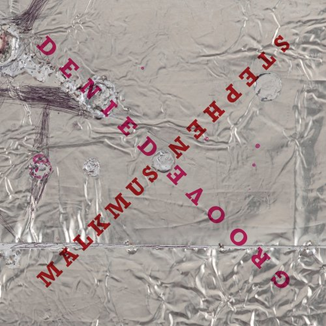
Stephen Malkmus – GROOVE DENIED
Genre: Electronic
Favorite Tracks: “Viktor Borgia,” “Rushing the Acid Frat,” “Ocean of Revenge”
From afar it may seem shocking and more than a little midlife crisis-y that Stephen Malkmus’ first electronic release comes well after he had kids and put out more than his fair share of lisp-y, twee indie rock records, but GROOVE DENIED just sounds like SLANTED ENCHANTED-era Pavement and Malkmus’ cover album of Can’s EGE BAMYASI betrothed and made a baby. GROOVE DENIED’s blogosphere press tour didn’t play down the influence that time spent living in Berlin had on Malkmus’ interest in creating synthesizer-heavy music, but where I imagined the album busting out Berghain ready house, it instead sounds like the 1977 German musicians who have influenced Malkmus since his earliest work. “Come Get Me” sounds like a 1992 Pavement song with a synth lead jacked from a Faust or Neu! track. GROOVE DENIED unawarely acts as Portland, OR’s response to LCD Soundsystem; it’s a record by an indie rock veteran whose punk past and drunken Eastern European misadventures came together to craft dance music for microbreweries instead of Miami nightclubs. Tracks like “Viktor Borgia” and “Forget Your Place” sound especially Williamsburg-y, with subtle synth arpeggios painting a backdrop for neurotic talk-singing that’s inevitably going to catch the ear of more bearded dads than DJs.
But the wildest thing about GROOVE DENIED is that it often sounds more like Pavement than The Jicks ever have. “Rushing the Acid Frat” may amply showcase “Vitamin C” swagger, but the knock-off Gibson guitar riff and partially-in-key synth simultaneously showcases evidence of Pavement’s influence on grubby bands like Times New Viking and Parquet Courts and the influence Pavement’s proteges have had on Malkmus himself. “Ocean of Revenge” is one of the record’s finest tracks, but I’m not entirely sure there’s a single electronic instrument played on it. The track is also an angsty song about a Mississippi upbringing which is not especially European or space age, but does make for engaging Stephen Malkmus storytelling. GROOVE DENIED is best when Malkmus plays into his dweebiest tendencies instead of those of an avant-dance superstar. Last year’s SPARKLE HARD is one of Malkmus’ best endeavours to date and showcased some of his most mature and comprehensible songwriting ever. Following a great album with an art-y concept record about raving overseas is definitely autonomously cool, but it also forces GROOVE DENIED to come off as more of a fixie-riding Malkmus nerd’s new favorite bootleg than an intentioned and informed full-length. GROOVE DENIED is a perplexing and extreme look into an alternate world in which Malkmus and his collaborators more liberally embraced electronics on past projects, but its best moments are those that aspire to be WHITE LIGHT/WHITE HEAT, not those that mimic Cerrone. [Ted Davis]
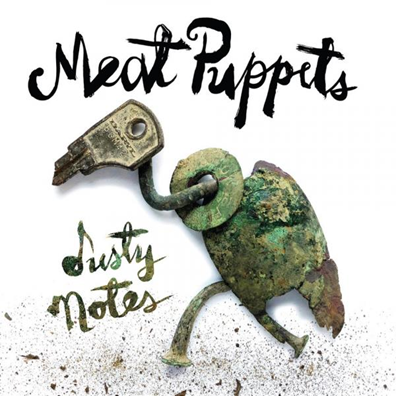
Meat Puppets – DUSTY NOTES
Genre: Cow Punk
Favorite Tracks: “Vampyr’s Winged Fantasy,” “The Great Awakening,” “On,” “Unfrozen Memory”
When I first heard that Meat Puppets were releasing their first album with their original lineup since 1995, it really didn’t mean a whole lot to me; while I have fond memories of driving with my dad in his truck blasting TOO HIGH TO DIE and finally getting around to listening to II in college, they were not a band who I followed with fervor, but I’m always game to listen to the mesmerizing vocal harmonies of the Kirkwood brothers, and could happily listen to them sing the phonebook on any long drive.
Their latest, DUSTY NOTES, is certainly an album made for long drives through barren spaces, but it’s not what I was expecting from the Meat Puppets, and I’ll chalk that up to being out of the loop with most of their work released in the past 20 years. It seems that for the most part, the band has put the screech of their whirlwind electric guitars on the backburner in favor for mellower acoustic sounds and… keyboards. The bass-driven opener and lead single, “Warranty,” certainly sounds like it was made for a dusty trail, and the catchy chorus provides the classic Kirkwood vocal harmonies that define the band. However, the repetitive nature of the music and the prevalence of jaunty country bass lines causes it to blend with songs like “Dusty Notes” or their cover of Don Gibson’s “Sea of Heartbreak.” One of the biggest issues with the album is the prevalence given to keyboardist Rob Stabinksy in the majority of the songs; the beautifully eerie guitar arrangement on stand out track “The Great Awakening” is overpowered by several overly busy key lines, and “Unfrozen Memory” is a distortion-laden ballad with a solid guitar solo, but all of the guitars are unfortunately overpowered by an out-of-place harpsichord. This isn’t to say that Stabinksy’s work is completely unnecessary, but it definitely should not be the star in the mix.
The album has its moments; “On” comes off as a classic saloon shanty, with an interesting key change and haunting vocal melody and “Nightcap” is a cinematic offering that evokes the warm landscapes of the southwest with its ringing chords and tasteful use of a wood block. The highlight, even if it is short-lived, is the epic “Vampyr’s Winged Fantasy.” Just as you feel your eyes begin to roll as you anticipate a keyboard driven slow-jam, you are rewarded with a gut-punching guitar chug-fest. A smooth chorus gives way to a ripping wah-wah-soaked solo and original drummer Derrick Bostrom is finally allowed to unleash his fury. Combine all this with an appropriately utilized electric synth line, and you have the all of the necessary ingredients for a too short prog-rock ripper. After almost feeling your face melt off your skull, album closer “Outlow” gently sets you back on the front porch so you can chainsmoke to gentle strumming as the sun sets. DUSTY NOTES is not some kind of grand return to form for a band that has the original gang back together. Instead it’s a record that sounds like it was made by some 60-year-old friends who got together to make some good music, and that’s probably because it is a record made by some 60-year-old friends who got together to make some good music, even if it’s just not the good music I was expecting. [Jake Mazon]
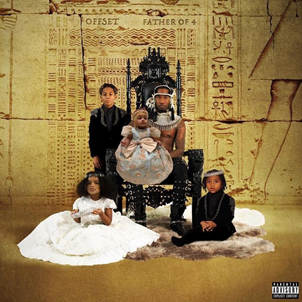
Offset – FATHER OF 4
Genre: Trap Rap
Favorite Tracks: “Underrated.” “Came A Long Way”
Look, I don’t have anything particularly interesting to say about FATHER OF 4. You don’t have anything particularly interesting to say about FATHER OF 4. Nobody has anything particularly interesting to say about FATHER OF 4! But it’s not like Offset has anything particularly interesting to say over the course of FATHER OF 4, either. Migos changed the sound of rap forever, and I’m never going to challenge the legacy of their importance to the genre, but the seminal YRN came out almost six years ago. To give us solo albums from Quavo, Takeoff, and Offset long after they’ve become commercialized and artistically plateaued is an endurance marathon of been-there-done-that. The cover art is at least gripping considering what an abject spectacle of horror it is, but there’s nothing remotely as engaging contained within from a musical perspective. If you’ve heard anything by Migos, you’ve heard exactly what Offset serves up here: other than the occasional moment of vulnerability, such as on “Father of 4,” where he comes to term with his lackluster job as a parent to his four children (one of whom is named Kulture…), or “After Dark,” where he earnestly tackles racial injustice, it’s the predictable Rolodex of Migos topics, delivered with 33% of the variety or energy. At the risk of sounding like an elitist jabroni, I want to make it clear I have no problem with gloating recitations of wealth and conquests, professional or otherwise, but you at least have to sell the dream, man. Here Offset phones it in, the rustle of the record executive counting his bills practically part of the production—Hell, that’d be more intriguing to listen to than anything apart from the commendably icy menace of “Underrated” and the begrudgingly endearing come-up tale of “Came A Long Way.” [Thomas Seraydarian]





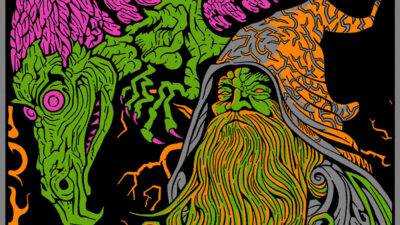



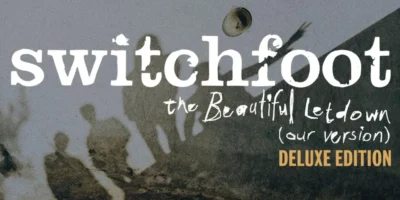






Comments